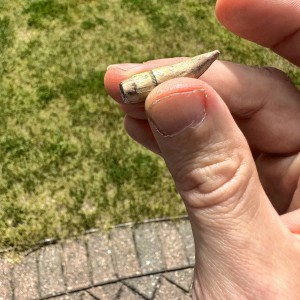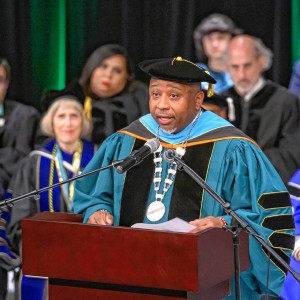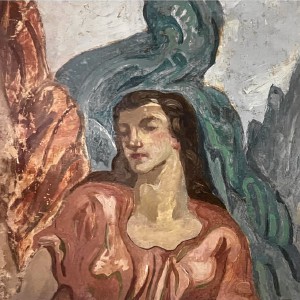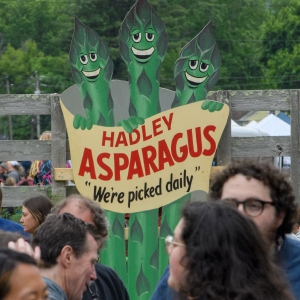A very good run: Last concert of the Magic Triangle series at UMass Amherst, begun in 1990, to take place
| Published: 04-20-2022 9:30 PM |
AMHERST — Over 30 years ago, Glenn Siegel, then working as a jazz DJ at WMUA-FM at the University of Massachusetts Amherst, went to talk to Frederick Tillis, the director of the university’s Fine Arts Center. Siegel and some other jazz DJs at the station were proposing the school produce three concerts at the Hampden Theater by jazz trios as a way of bringing some lesser-known musicians to campus.
Tillis and Bob Antil, then the head of the university’s Residential Arts Program, thought it was a good idea — and given the concerts all involved jazz trios, they dubbed the program, which debuted in February 1990, the Magic Triangle series.
That series went on to embrace many other types of jazz and world music ensembles, including some with up to 30 players, and it became a regular part of the Fine Arts Center’s programming. At its helm was Siegel, a jazz aficionado who was dedicated to bringing talented but lesser-known players to campus, with a particular focus on those who pushed the boundaries of musical styles.
Now Siegel, who retired from UMass about a year and a half ago but continued to produce music programming there, is hanging up his spurs. The last Magic Triangle concert takes place Thursday, April 21 at 7:30 p.m., when the GO Organic Orchestra joins the Brooklyn Raga Massive at Bowker Auditorium for a blend of world music, jazz, and Indian music.
“It’s been quite a run,” Siegel said during a phone call. “I’ve had the chance to work with so many great musicians, and I’m really grateful for that. And I’m grateful Fred Tillis embraced the idea right from the start and put some resources behind it.”
Siegel, who lives in Northampton, said he regretted the Magic Triangle series won’t continue; the original plan, he noted, was for him to train someone at the Fine Arts Center to take over the program, but that project appears to have fallen victim to the pandemic, he said.
Other “innovative arts programs” at the university, such as New WORLD Theater and the Bright Moments summer music series, have also come and gone, Siegel noted, as UMass has moved on to other programming: “In that sense it’s not surprising that Magic Triangle would also end at some point.”
However, Siegel, who estimates he’s produced over 300 concerts during his career at UMass and other area venues, continues to be busy with that, in particular through Pioneer Valley Jazz Shares, the program he began over 10 years ago in which jazz fans prepay for concerts in different locations around the Valley.
Article continues after...
Yesterday's Most Read Articles
 Holyoke man finds bear paw in his yard
Holyoke man finds bear paw in his yard
 Developer lands $400K loan for affordable housing project in Easthampton mill district
Developer lands $400K loan for affordable housing project in Easthampton mill district
 Petition to block auto dealership on King Street falters in Northampton
Petition to block auto dealership on King Street falters in Northampton
 Fearful Belchertown residents blame stray bullets on nearby gun club, appeal to town for help
Fearful Belchertown residents blame stray bullets on nearby gun club, appeal to town for help
 South Hadley man fatally shot in attempted robbery
South Hadley man fatally shot in attempted robbery
 First look at how little Amherst’s police alternative being used called troubling
First look at how little Amherst’s police alternative being used called troubling
After averaging about 10 shows a year, the program has offered 19 in the past year, he said.
“That’s partly because of the backlog of shows that were postponed during the pandemic,” he said. “But we’re also discovering new places to stage them.” (PVJS shows have now been staged at the Bombyx Center for Arts & Integrity in Florence, for instance.)
Siegel has won many plaudits for his music production in the Valley, including recognition in 2019 as a “Jazz Hero” by the Jazz Journalists Association. Fine Arts Center officials have in turn praised him for his deep love and extensive knowledge of jazz and improvised music, and for introducing new sounds and musicians to the Valley.
The April 21 show is a case in point. The GO Organic Orchestra, directed by composer and percussionist Adam Rudolph, uses an improvisational conducting model that incorporates instruments and rhythms from around the world, Siegel says — Cuban drums and Japanese flutes, for example. The Brooklyn Raga Massive, in turn, consists of musicians trained in classical Indian music who also embrace different styles.
Their playing together, Rudolph said in a statement, produces a sound that “feels like the culmination of everything I’ve been reaching for throughout my career.”
Siegel, who’s worked with Rudolph before on some smaller UMass concerts, says the April 21 show “seems like a fitting way to wrap up the Magic Triangle series and all the exploration we’ve done with that.”
For more information on the concert, and to order tickets, visit fac.umass.edu/Online/.
Steve Pfarrer can be reached at spfarrer@gazettenet.com.
 New HCC president reflects on journey: Timmons sees his own struggles and arc in students’ paths
New HCC president reflects on journey: Timmons sees his own struggles and arc in students’ paths Historic murals restored at Victory Theatre in Holyoke
Historic murals restored at Victory Theatre in Holyoke Boards balk at limiting use of Hadley Town Common
Boards balk at limiting use of Hadley Town Common
